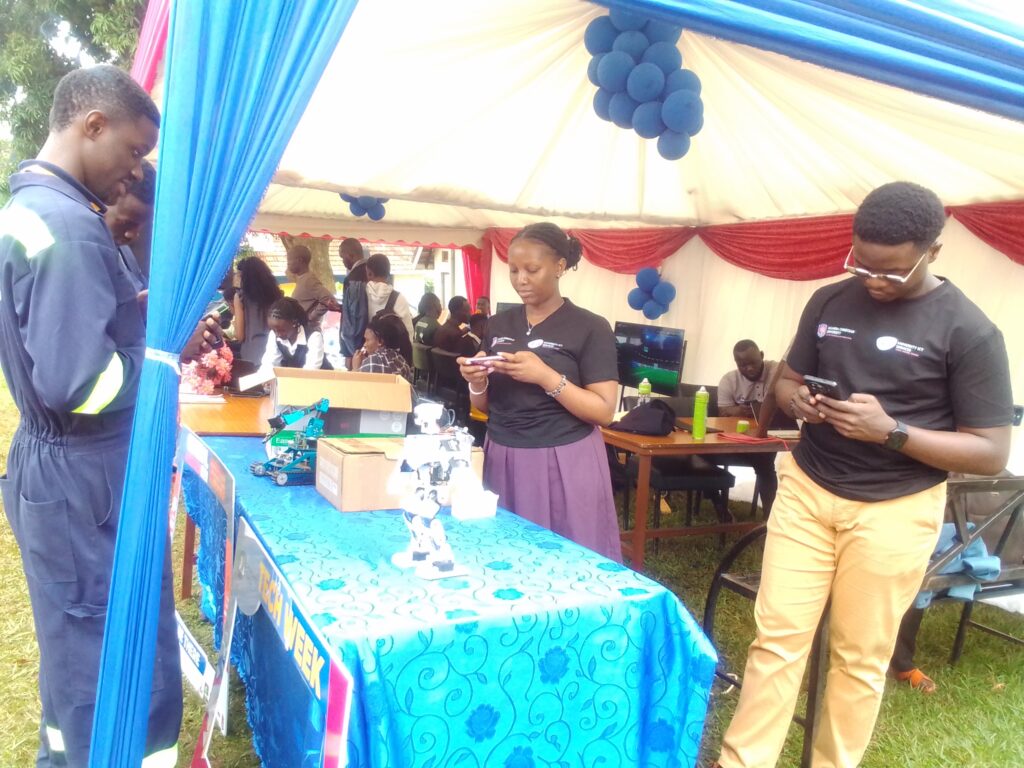By Faida Florance
Uganda Christian University (UCU) has launched the fourth season of its Trinity 2025 Technology Week under the theme, “Connected People, Campus and System,” with a strong focus on cyber security, digital literacy, and system integration.
The week-long event, spearheaded by the University Internet Service (UIS) department, aims to reinforce the university’s goal of becoming a fully digital campus. It brings together students, staff, and technology experts to engage in practical training sessions, innovation showcases, and discussions on aligning technology with educational and institutional goals.
According to Mrs. Rebecca Kangabe, UCU’s Director of ICT Services, the university is investing in cutting-edge digital systems like Alpha MIS, Moodle, and eChagua to foster collaboration, productivity, and secure access. “Our vision this semester is to become a digital campus through ensuring systems that are responsive, compliant, and cutting-edge,” she stated. “We must prepare our students to be cyber-aware in a world where they are constantly online.”
In a climate where digital threats are increasingly rampant, including scams, phishing, and identity theft, the Technology Week has zeroed in on building a secure online environment for both students and staff. Mr. Musasizi Kenneth Kabinga, a UIS software engineer, emphasized the need for protection on all university platforms. “That’s why some of our systems, such as eChagua, feature multi-factor authentication. We want to minimize election rigging and enhance platform integrity,” he explained.
An internal ICT report revealed that 65% of UCU students admitted to reusing passwords or clicking suspicious links, exposing themselves to potential cyber threats. UIS has since taken a proactive approach by conducting training sessions on cyber hygiene, identity protection, and recognizing phishing attempts.
This effort has been well received across departments. Kenneth Erickson Kirya from the Hamu Mukasa Library noted the significant impact of these initiatives. “UIS has simplified our workload by bringing cyber security training closer to the people,” he said. “Now our online systems, including access to dissertations and scholarly works, are much safer.”
Student testimonials further highlighted the training’s relevance. Ruth Namatovu, a second-year education student, admitted that the session was eye-opening. “I thought cyber security was only for computer science students. But I learned I was exposing myself daily through poor account settings,” she shared.
Brian Musoke Jacob, a first-year business student, recounted losing his email to a phishing attack earlier this year. “The workshop described my experience exactly. The UIS team even cleaned up my laptop,” he said gratefully.
Technology Week also provided interactive activities such as ethical hacking simulations, AI and privacy debates, and a cyber hygiene competition with tech prizes up for grabs. Students like Tracy Peace Akui, a second-year law student, appreciated the hands-on support. “They helped me fix my Eduroam connection and introduced me to online games I’ve always wanted to learn,” she said.
As the week continues, UCU remains committed to cultivating a digitally responsible and informed campus community. The UIS department affirms that their long-term mission is to create a digital-first learning environment where people, platforms, and purpose are fully aligned.


